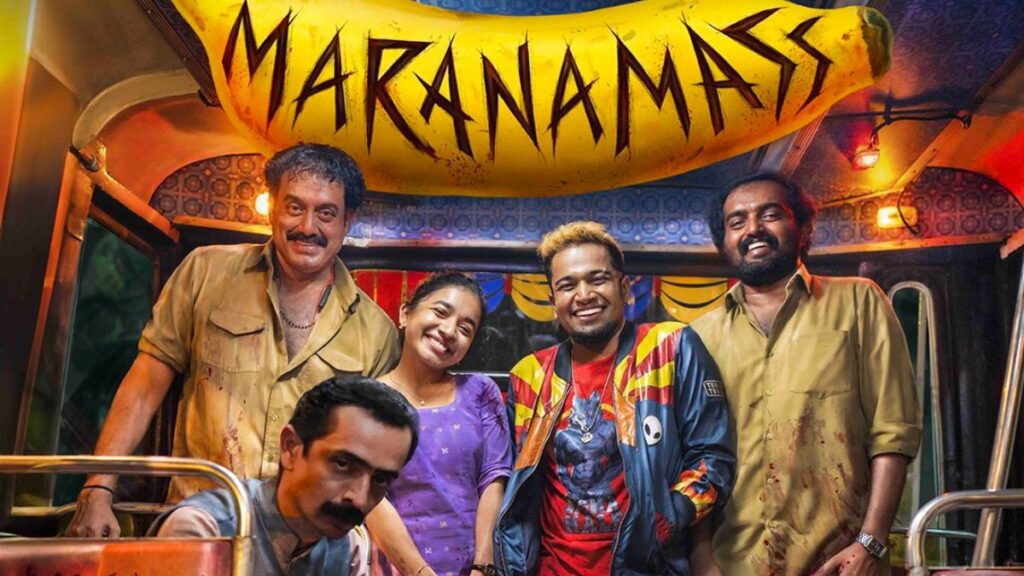The Malayalam film Marana Mass, starring popular actor-director Basil Joseph and co-produced by leading actor Tovino Thomas, has sparked a major debate after being banned in Saudi Arabia and censored in Kuwait. The reason? The film features a transgender actor in a supporting role.
The film, which is a dark comedy thriller directed by debut filmmaker Sivaprasad, was expected to release globally. However, authorities in Saudi Arabia refused to clear it for screening, and in Kuwait, the film was allowed to release only after the scenes involving the transgender actor were cut. This has led to widespread criticism and raised questions about censorship, inclusivity, and freedom of expression in cinema.
A Stand for Representation
Marana Mass was developed with the intention of breaking stereotypes and normalizing LGBTQ+ representation in mainstream Indian cinema. The director made it clear that the casting decision was purely based on talent and suitability for the role. He emphasized that the actor’s gender identity was never a consideration during the casting process, stating that the team only focused on finding the right fit for the character.
The film’s team has stood firmly behind their decision to include the transgender actor, calling it a step forward for diversity and equality. They have also expressed disappointment over the ban but maintained that they have no regrets in standing up for representation.
Tovino Thomas Speaks Out

In response to the ban, co-producer and popular Malayalam actor Tovino Thomas addressed the issue during a media interaction. He acknowledged that every country has its own rules and cultural boundaries, but also raised a deeper concern about the state of freedom of expression and acceptance in society.
Tovino said, “Countries like Saudi Arabia have certain rules, and we can’t go there and change them. But in India, a democratic country, we must ask ourselves an important question – have we progressed or regressed in the last five years?”
He expressed concern over increasing intolerance and censorship, not only in other countries but also within India. Referring to the years since 2019, Tovino added, “There’s a big difference in how things were in 2019 and how they are now. I have doubts about whether we are moving forward or backward as a society.”
His comments have sparked widespread conversation online, with many praising him for his boldness in speaking out, while others debated whether films should challenge traditional values in conservative regions.
The Larger Issue of Censorship
The banning of Marana Mass is not an isolated incident. Over the past few years, several films from India and around the world have faced bans or censorship in the Gulf region due to content that challenges cultural or religious norms. Topics such as LGBTQ+ rights, gender identity, and political criticism often trigger strict scrutiny.
While censorship laws vary from country to country, these decisions often impact filmmakers’ ability to tell stories that reflect the real world. For many in the creative industry, it is a constant battle between artistic freedom and cultural sensitivity.
In India, the censorship debate is also intensifying. Several filmmakers and actors have voiced concerns over growing interference from political and religious groups, which has led to the shelving or editing of many projects. The concern is that creative expression is being stifled, and bold stories are being silenced out of fear of backlash.
Audience Reactions
The audience, especially the younger generation, has largely shown support for the cast and crew of Marana Mass. On social media platforms like Instagram and X (formerly Twitter), many users called the ban “regressive” and expressed their disappointment at the lack of acceptance for LGBTQ+ characters.
One user wrote, “A film that celebrates diversity should not be punished. Representation matters. Kudos to Tovino and team.” Another comment read, “It’s 2025. Are we still banning films for having queer characters? How is this okay?”
Film critics also pointed out that Marana Mass was being praised for its screenplay, humor, and fresh storytelling, and that the actor in question delivered a strong performance. According to early reviews, the inclusion of the LGBTQ+ character was handled with dignity and realism, not tokenism.
What This Means for Indian Cinema
The incident is yet another reminder of the fine line filmmakers walk when dealing with sensitive subjects. While India has seen a rise in progressive films tackling social issues, international distribution still poses challenges.
With more Indian films now being released across the Middle East and other global markets, creators must often navigate varying degrees of censorship. This incident may discourage some producers from including LGBTQ+ representation in films, fearing limited overseas releases. But others argue this is exactly why more voices need to speak up — to challenge these boundaries and bring change.
Tovino Thomas, who has previously starred in socially impactful films like Minnal Murali and 2018, has consistently used his platform to speak out on issues of justice, equality, and inclusion. His latest comments reflect a growing desire among artists to see Indian cinema evolve beyond traditional norms and embrace diversity in its truest form.
A Call for Reflection
As Marana Mass continues to make headlines, the question Tovino raised resonates deeply: Are we moving forward or backward? Is society truly progressing if we still silence stories that don’t fit into a narrow mold?
The controversy has not just sparked a debate about censorship, but also about the role of cinema in shaping public opinion and challenging outdated mindsets. In a time where inclusivity is being celebrated worldwide, the ban on Marana Mass serves as a wake-up call — both to the film industry and the wider society.
It’s not just about one film or one actor. It’s about the stories we allow to be told, and the voices we choose to amplify.
Saudi Arabia Discovers 14 New Oil and Gas Fields in Major Energy Breakthrough



